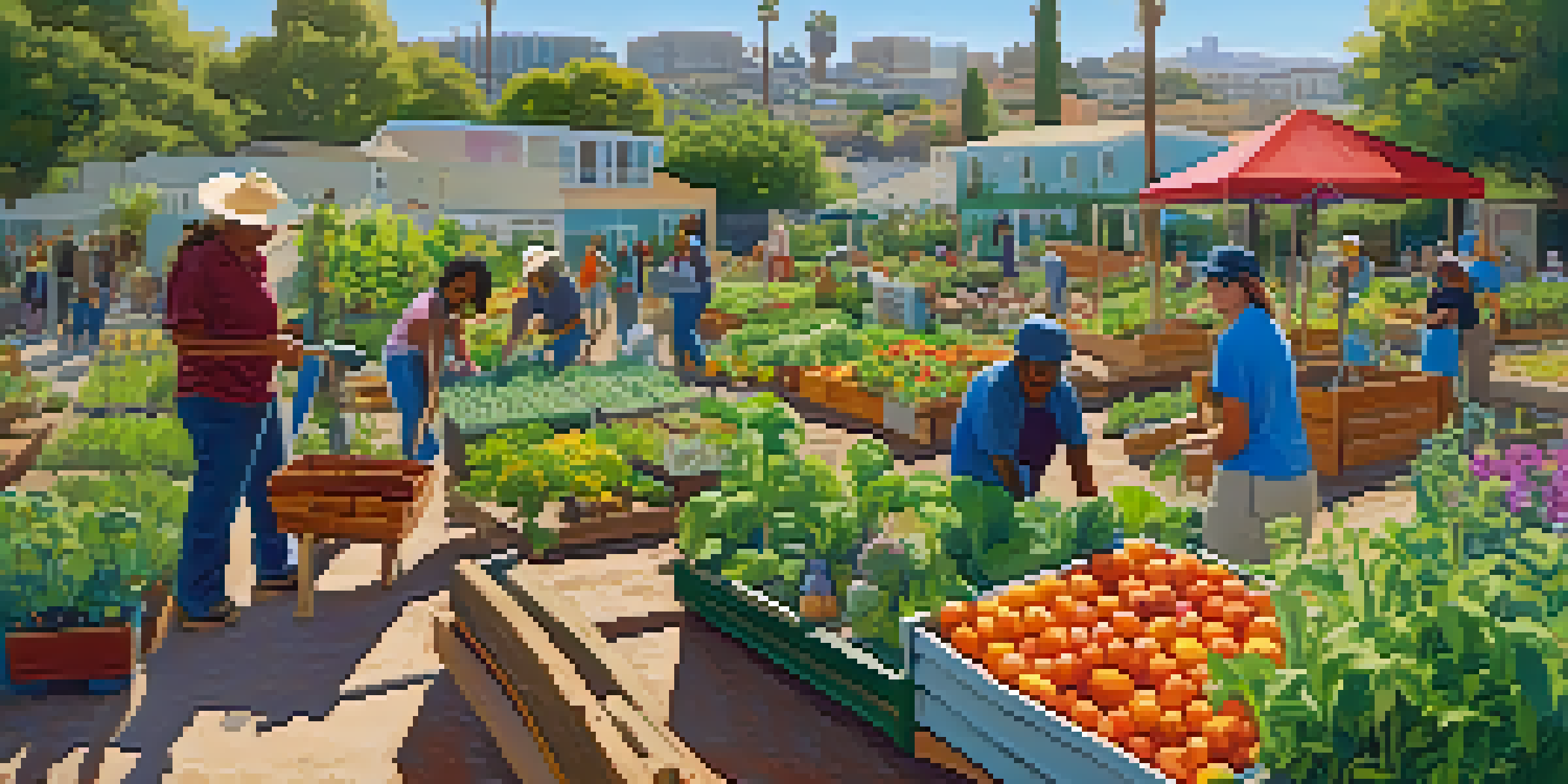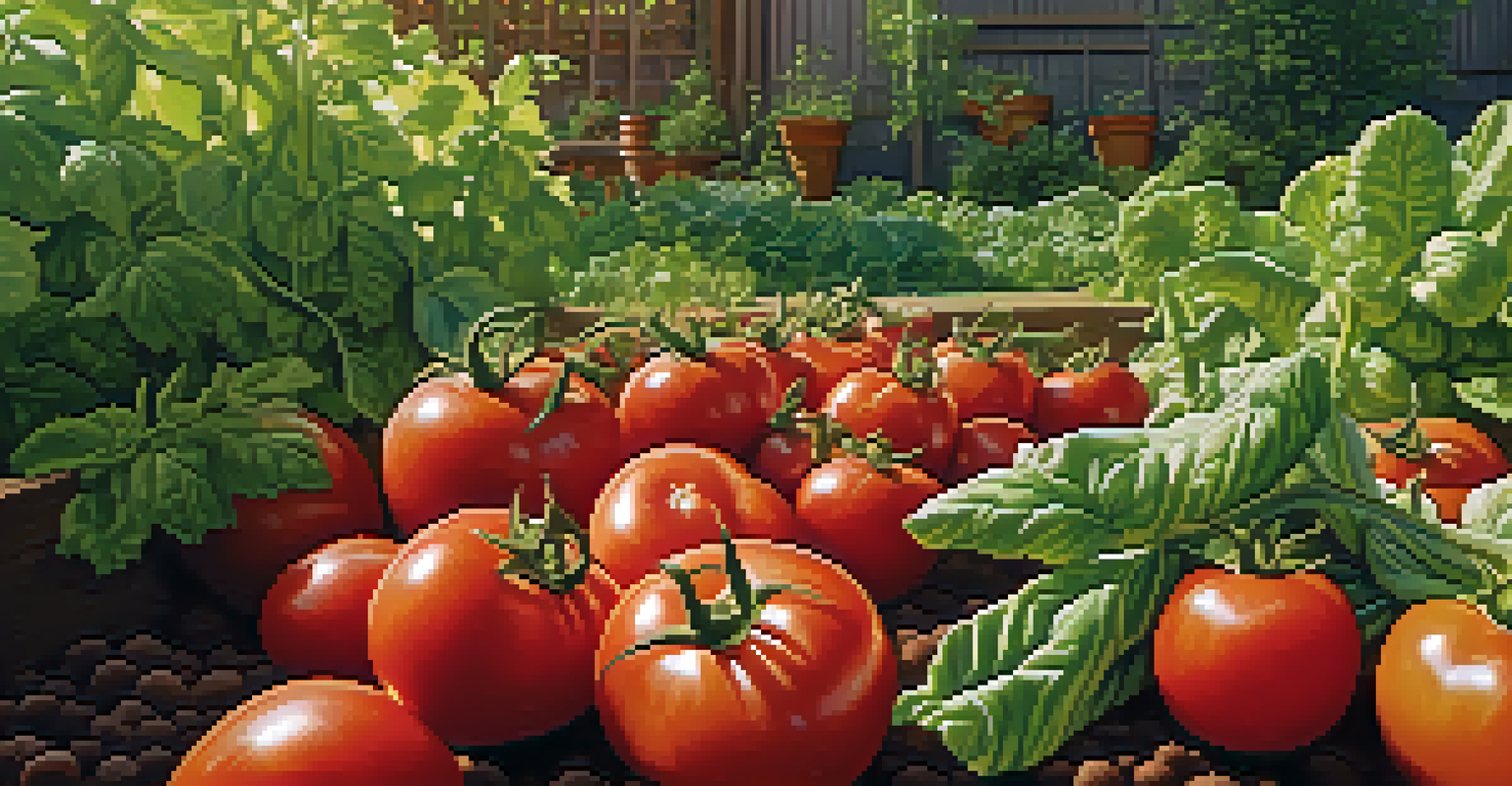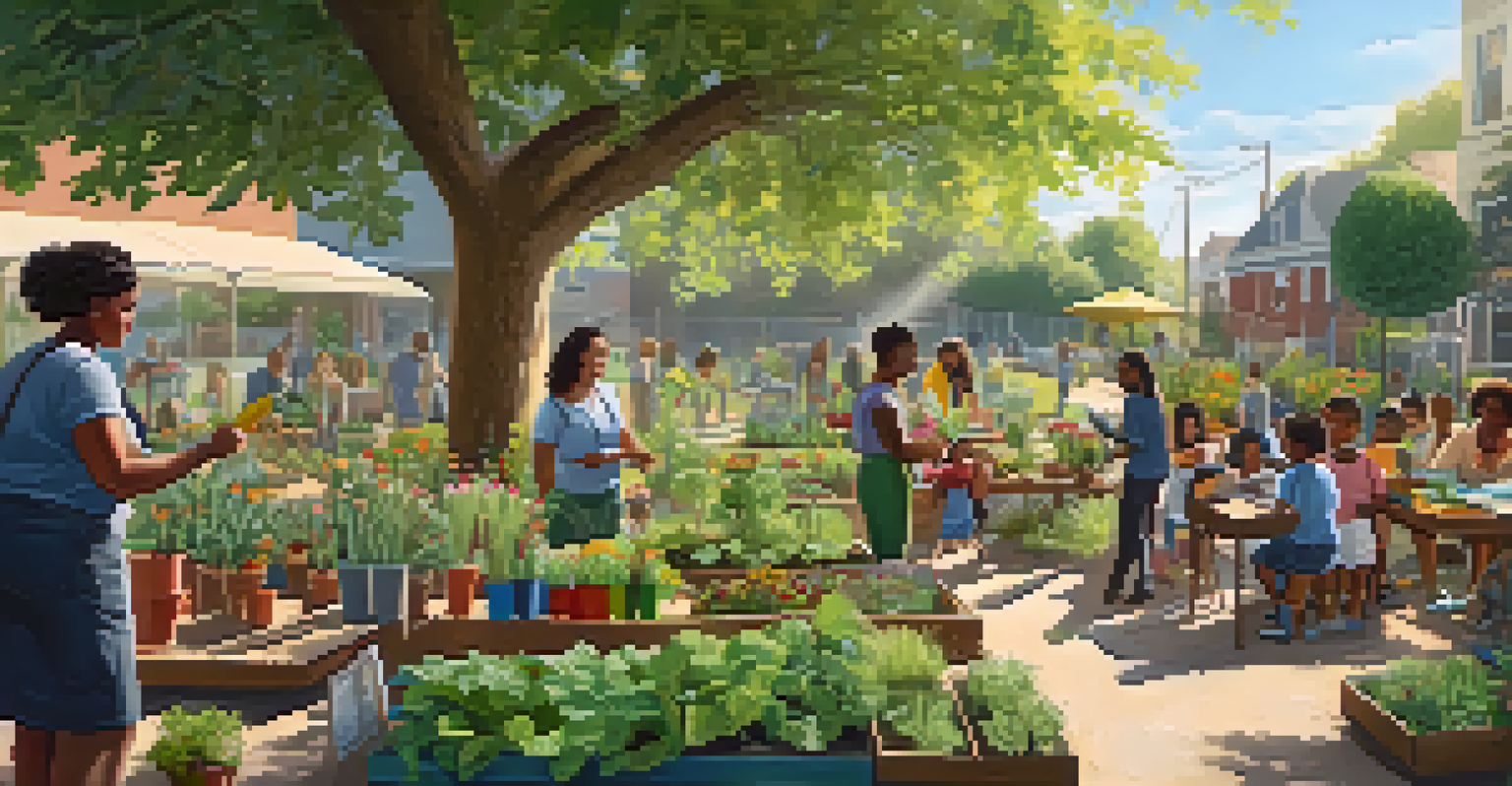San Diego's Urban Community Gardens: A Model for Sustainability

What Are Urban Community Gardens in San Diego?
Urban community gardens are shared spaces where individuals come together to grow fruits, vegetables, and flowers. In San Diego, these gardens serve not only as green oases but also as hubs of community engagement. They transform vacant lots into vibrant patches of greenery, promoting both ecological diversity and social interaction.
In every community, there is work to be done. In every nation, there are wounds to heal. In every heart, there is the power to do it.
These gardens vary widely in size and purpose, ranging from small plots in backyards to larger, more organized community spaces. Local residents can participate in gardening, learning about sustainable practices while enjoying the fruits of their labor. This initiative also helps to address food deserts, providing fresh produce to neighborhoods that may lack access to grocery stores.
Moreover, community gardens foster a sense of belonging among residents. By working together, people from different backgrounds and generations connect, share knowledge, and cultivate relationships. This communal aspect not only enhances the gardening experience but also strengthens the fabric of the community.
The Environmental Benefits of Urban Gardens
Urban community gardens play a crucial role in promoting sustainability by enhancing local ecosystems. They provide habitats for pollinators like bees and butterflies, which are essential for the health of our food systems. Additionally, these gardens help mitigate urban heat by cooling the environment and improving air quality.

Soil health is another critical aspect of these gardens. By practicing organic gardening methods, participants enrich the soil with nutrients and prevent erosion. This sustainable approach not only yields healthier plants but also fosters a more resilient urban landscape.
Community Gardens Foster Connection
Urban community gardens serve as vibrant spaces that bring residents together, promoting social interaction and a sense of belonging.
Moreover, urban gardens can contribute to biodiversity. By introducing a variety of plants, they create a mini-ecosystem that supports various species. This diversity is vital for creating a more balanced environment and can even inspire city-wide initiatives aimed at enhancing urban wildlife habitats.
How Community Gardens Promote Social Interaction
One of the standout features of community gardens is their ability to bring people together. Residents often collaborate on projects, share gardening tips, and celebrate harvests. This communal effort fosters friendships and builds a supportive network among neighbors.
The best time to plant a tree was twenty years ago. The second best time is now.
Events such as potlucks, workshops, and volunteer days create opportunities for social interaction beyond gardening. These gatherings allow participants to bond over their shared love for nature and healthy living. They also provide a platform for exchanging ideas and cultural practices related to gardening.
The social capital developed in these gardens is invaluable. A strong community can lead to increased civic engagement, where residents feel empowered to advocate for their neighborhoods. This sense of ownership can spark broader initiatives aimed at improving local infrastructure and services.
Educational Opportunities in Urban Gardens
Community gardens in San Diego serve as live classrooms, offering educational opportunities for all ages. Schools, families, and community organizations often collaborate to teach gardening skills, nutrition education, and environmental stewardship. These hands-on experiences help participants understand where their food comes from and the importance of sustainable practices.
Workshops on topics like composting, organic pest control, and seasonal planting attract both novice and experienced gardeners. Participants leave with practical skills they can apply at home, making sustainability a part of their daily lives. This educational component not only enriches individuals but also empowers them to make informed choices.
Sustainability Through Urban Gardens
These gardens enhance local ecosystems, improve air quality, and contribute to biodiversity while promoting sustainable practices among participants.
Furthermore, many gardens partner with local universities and extension services to provide research-based information. This connection ensures that the community has access to the latest sustainable practices and gardening techniques. It reinforces the idea that learning never stops, especially in the ever-evolving field of urban agriculture.
Challenges Facing Urban Community Gardens
Despite their many benefits, urban community gardens face several challenges. Limited access to land and funding can hinder the establishment and maintenance of these gardens. In cities like San Diego, where real estate prices are high, securing a plot can be a significant barrier.
Additionally, maintaining community engagement can be tricky. Gardens thrive on the involvement of diverse participants, but fluctuations in interest can lead to inconsistency in care. Without regular maintenance, gardens may become overgrown or neglected, which can discourage involvement.
Moreover, policy and zoning regulations can impact the sustainability of these gardens. Advocating for supportive policies is essential to ensure that community gardens are recognized as valuable assets. Addressing these challenges collectively can help secure the future of these green spaces.
The Role of Local Organizations in Supporting Gardens
Local organizations play a vital role in supporting urban community gardens in San Diego. Many nonprofits and community groups provide resources, funding, and expertise to help establish and maintain these spaces. Their involvement ensures that gardens remain accessible and sustainable for future generations.
Through grant programs, workshops, and volunteer initiatives, these organizations empower residents to take ownership of their gardens. They often facilitate training sessions that equip gardeners with the skills needed to cultivate successful plots. By providing support, they help foster a sense of community pride and responsibility.
Challenges in Community Gardening
Despite their benefits, urban community gardens face challenges like limited land access, funding issues, and the need for sustained community engagement.
Furthermore, local organizations advocate for policies that protect and promote urban gardens. By working with city officials and stakeholders, they can help create a framework that encourages the growth of community gardens. This collaboration is essential for ensuring the long-term viability of these vital green spaces.
Future of Urban Community Gardens in San Diego
The future of urban community gardens in San Diego looks promising, driven by a growing awareness of sustainability. As more residents recognize the importance of local food systems and green spaces, interest in community gardening continues to rise. This shift is encouraging the city to prioritize urban agriculture in its planning efforts.
Innovations in gardening techniques, such as vertical gardens and hydroponics, are also paving the way for more sustainable practices. These methods can maximize space and resources, making gardening accessible even in densely populated areas. As these techniques gain popularity, they can inspire new generations of gardeners.

Ultimately, the success of urban community gardens will depend on continued community engagement and support. By working together, residents can create a more sustainable, resilient future. With the right resources and commitment, these gardens can thrive, serving as models for urban sustainability.